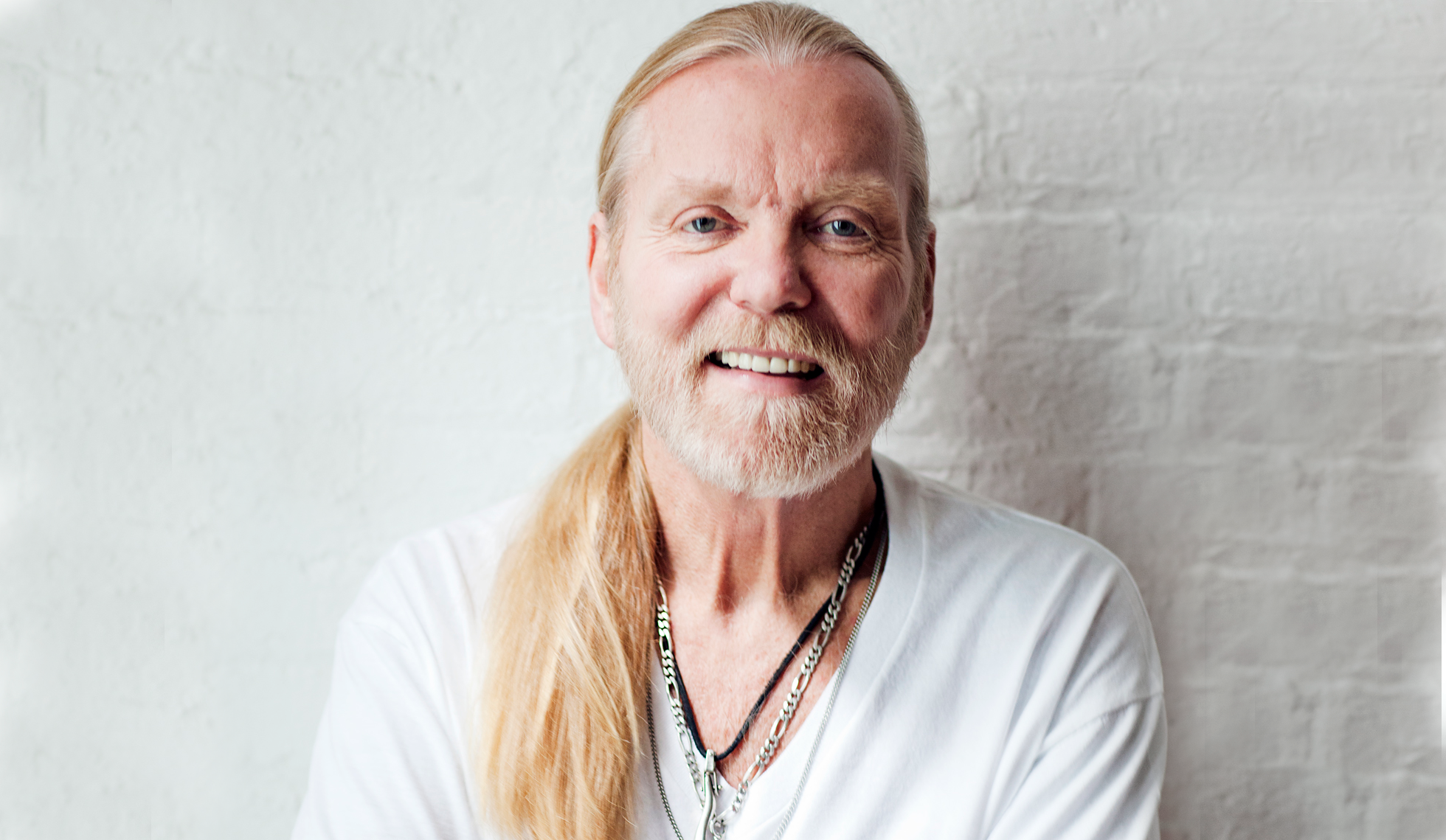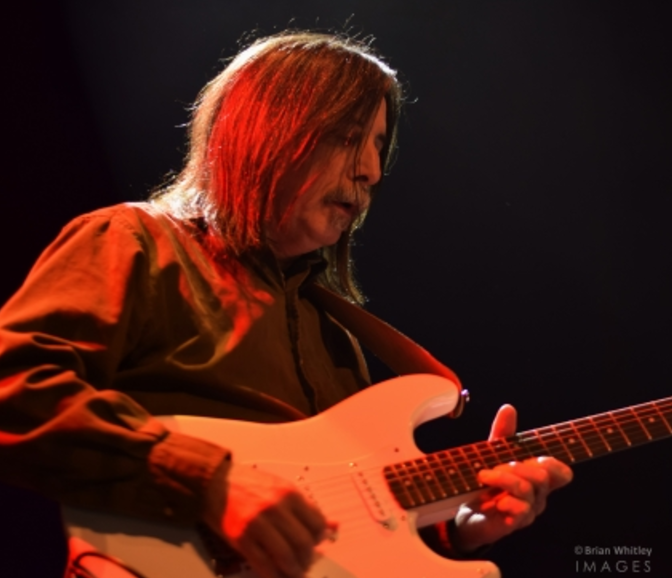All My Friends Part III: Jack Pearson, Chank Middleton and Bert Holman

Gregg Allman’s bandmates and confidantes reflect on his life and music.
Jack Pearson
You bonded with Gregg on a songwriting level. What were your collaborations like?
Gregg wrote so many great songs, and to get to write with him was amazing. We co-wrote “Come Back and Help Me” with William Howse. It was on Searching for Simplicity. We were on tour and had a day off, and I said, “Hey, man. Listen to this.” I played him the song I had started with William; he dug it, so we finished it in just a few minutes. He loved William, too; they got along great. Gregg was very easy to write with. We also co-wrote “Sailing Across the Devil’s Sea” and “Rockin’ Horse.” We started writing a couple of other songs but never got to finish them.
I first met Gregg in 1993 when I subbed for Dickey in the ABB. He heard some demos of my songs and was very encouraging to me about my songwriting, which meant so much to me. After that tour was over, he invited me to his house in the fall of 1993 to write together. Then, I started playing in Gregg Allman & Friends until 1997, when I was asked to join the Allman Brothers. 
Was there an element of Gregg’s playing or personality that surprised you the most when you started performing with him?
The first night I played with him was very intense. But, really every show just being that close to my favorite singer, there’s no words for it—and the way he would smile when the music got good. Gregg has always been my favorite singer—period. And I loved his organ playing, the way he would change the drawbar sounds, building dynamics behind the soloist. I used to go over and stand by him and get close to his Leslie and play rhythm with him behind Dickey’s solos—man, now that was fun. Gregg was funky and grooved hard, and he used the best drawbar sound, changing the organ tone with the mood of the music. For instance, I really enjoyed watching him as he constantly changed the drawbars and chord voicing behind Dickey’s solo on “Ramblin’ Man.” It was so beautiful. Most of those things got buried in the mix out front and on the records, so it was really great to experience it just a few feet away from the source. We would play our acoustic guitars together in hotel rooms—what an experience. I learned so much from him.
We used to hang out a lot together. Sometimes it would be just me and him sitting up front in the bus at 3 a.m. It was peaceful—these nice conversations. We were tight— we would get excited just to get some home-style cooking on the road, little things like that.
I remember very clearly the day Gregg called me and asked me if I wanted to join the Allman Brothers Band. It was such a shock but only took me one second to say, “Yes.” Love my brother dearly. I miss you Gregory.
Chank Middleton
How did you first become friends with Gregg?
I was out of high school, like two months, when we first met. I was shining shoes in a barbershop next to their studio but, at that point, they were still converting it from an upholstery shop into the studio. They didn’t have air conditioning yet, but the barber shop that was right next door did. So they’d come over and get drinks and get cool in the air conditioning. Everybody liked them—they didn’t have any problem in the barbershop. Duane and I were better friends than me and Gregg, but Gregg and I bonded the night Duane died. And ever since then, it’s been a great friendship.
That’s also when problems started happening in the band because, after Duane died, no one would step forward and take a lead. Duane had a way about him—an almost humble aggressiveness—where if he told the band, “I want everyone at the Big House at 8 p.m. for rehearsals,” then everyone would start coming in at 6 p.m. But Gregory was never like that. Even for the last 10 years, with his solo band, he always told them: “Ya’ll don’t work for me; we all work together,” because he didn’t want to be in that boss-man, leader-type role. He felt it was a group thing and that everybody should have some input.
Some people called him Gregg and others called him Gregory. What was the distinction?
He hated it when somebody referred to him as a rock star. He didn’t like it because he didn’t look at himself like that. It was always about the music. That came first and everything else just came with that. So his stage name was Gregg but, once he walked off that stage, he would go back to regular Gregory. All his close friends called him Gregory and he knew that. So if he was walking by 100 people outside this venue and everybody was yelling out, “Gregg! Gregg! Gregg!” and just one person was yelling, “Gregory!” he would turn around and acknowledge that one person.
Which of Gregg’s songs holds the most meaning for you?
It would have to be “Win, Lose or Draw” because that’s the one he wrote about me. I went to prison in 1972. I was in prison for two years. When I got out of prison in 1974, he hired me the same day. The first time I officially worked for him was after I got out of prison; before that, we were just friends. He hired me and moved me into his house in Macon. The second night we were in the house, he called me into the bedroom and said, “I got something I want you to hear.” So we go in the bedroom, he brings out the acoustic guitar and he plays a song. While he was singing it, it sounded like he had written it about me but I wasn’t sure. When he got through it, he looks at me and goes, “Bro, I started writing this about you when you first went to prison. Now that you’re out, let’s revise it.” So I started telling him about the experiences I had— as far as being addicted to heroin, being locked up in a county jail and going to prison—and the different things that had gone on in my life while I was in prison. That’s what the song ended up being. “Win, Lose or Draw” was always his, but he took words that came out of my mouth and turned them into poetry.
Bert Holman
Although Gregg was a larger than life figure onstage, how would you describe his demeanor when he walked offstage?
I would describe Gregg as being painfully shy. I once said that to him, and he looked at me and he said, “You have no idea.” A lot of people thought he was aloof or cold. No, he was really, really, really shy. He didn’t like being alone, but he didn’t like being in a crowd of people. He especially didn’t like being with people he didn’t know. It’s that insecurity. Then again, when you have a brother like Duane who was so explosive as a player—Duane was so far ahead of everybody— you had to feel inadequate. For Gregg or even someone like Dickey Betts, as great a player as he is, look who at who they were playing with. It was like Roger Maris playing outfield with Mickey Mantle. You’re playing with Babe Ruth or something. It’s like when you play with LeBron James.
Having said that, while Gregg certainly merited acclaim for his voice, he was a gifted Hammond player.
Gregg is very underappreciated as a keyboard player. He is a master of the drawbars. If you ever watch any of the videos, you see his hands. He’s always playing one-handed, and moving the drawbars back and forth. He knew exactly where they were. I asked him once if he was looking at the numbers and he said, “No, I can feel the clicks.” He’d push them in and count three out, or push them in and count two in, to know where he was. He was also a master of the speed on the Hammond B-3 Organ Leslie and, for years, I was mesmerized by it, watching the way it starts and stops, and goes to high-speed and low-speed. Gregg inherently knew when to throw the switch to get it to go to the speed he wanted it at the note he wanted. He was also a true master of the Leslie controls— even more so than what he played because he would get these tones and sounds, bending them and moving them probably better than anybody out there.
How would you characterize Gregg’s legacy as a performer?
I’m going to paraphrase something that I just saw in an obituary for Anita Pallenberg in The New York Times. I’d say Gregg is a triumph of talent over substance abuse. And then, in later years, Gregg got his shit together.



















